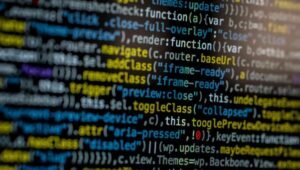AI Makes Us Lazy
Artificial Intelligence (AI) has been revolutionizing various industries, making our lives easier and more convenient. However, it’s essential to recognize the potential downsides. While AI undoubtedly enhances productivity and efficiency, there is a growing concern that it may also lead to laziness among individuals. This article explores the impact of AI on human laziness and discusses whether this technology is making us lazier.
Key Takeaways
- AI enhances productivity and efficiency but may contribute to human laziness.
- Increased reliance on AI tools can lead to less effort and critical thinking.
- We must strike a balance between utilizing AI technology and maintaining our own cognitive abilities.
The Rise of AI and Its Impact on Human Laziness
With AI-powered devices and services becoming more prevalent in our daily lives, there is a growing concern about the potential negative impact on human productivity and motivation. While AI technology aims to streamline processes and automate tasks, it also has the unintended consequence of making us reliant on it for even simple tasks.
As AI becomes increasingly sophisticated, we risk losing our natural inclination to put in effort and think critically.
Beyond our personal lives, AI also affects the workplace. From automated customer support systems to intelligent data analysis tools, AI has transformed how businesses operate. While these advancements have undoubtedly improved efficiency, they may inadvertently diminish the motivation and work ethic of employees who rely heavily on AI-powered tools to complete their tasks.
The Role of AI in Everyday Life
AI is integrated into many aspects of our daily routines, from virtual assistants like Siri and Alexa to smart home devices that automate various household activities. These innovations bring convenience, saving us time and effort. However, there is a concern that relying too heavily on AI for mundane tasks could have long-term consequences.
When AI takes over our routine activities, we risk losing the motivation to engage in these tasks ourselves.
For instance, using AI-powered fitness apps that track our steps, heart rate, and calorie intake can diminish our intrinsic motivation to stay active and accountable for our own health. The same applies to AI-driven navigation and transportation apps that eliminate the need for us to navigate or plan our routes independently.
Data on the Rise of AI Dependency
Research has shown the increasing reliance on AI and its impact on human laziness. Let’s take a look at some data:
| Statistic | Percentage |
|---|---|
| Individuals who rely on AI for daily household chores | 65% |
| Employees who use AI-powered tools in their daily work | 80% |
Striking a Balance: Utilizing AI Wisely
While AI undeniably offers numerous benefits, it’s crucial to strike a balance between utilizing this technology and maintaining our cognitive abilities. Here are some ways to achieve this balance:
- Use AI as a tool rather than a crutch, leveraging its capabilities while still actively participating in tasks.
- Maintain critical thinking skills by challenging yourself to solve problems without relying solely on AI solutions.
- Allocate dedicated time for self-reflection and introspection, allowing your mind to stay sharp and engage in meaningful activities.
The Future of AI and Human Interaction
The future of AI is undoubtedly promising, but it’s crucial to stay mindful of the potential consequences it may have on human motivation and engagement. As the capabilities and prevalence of AI continue to increase, it’s important to continuously assess the impact on our lives and ensure that we maintain a healthy balance between utilizing AI and preserving our own abilities.
Conclusion
While AI undoubtedly offers numerous benefits and enhances efficiency, there is a potential downside of increased human laziness. However, by utilizing AI as a tool and maintaining our cognitive abilities, we can strike a balance and navigate the AI-driven future with mindfulness and purpose.

Common Misconceptions
Misconception 1: AI does all the work for us
One common misconception about AI is that it does all the work for us, making us lazy. While AI technology has certainly automated some tasks and made our lives more convenient, it does not mean that it replaces the need for human effort and intelligence.
- AI still requires human interaction and supervision to function properly
- We still need to provide the necessary data and instructions for AI systems to generate accurate results
- AI can assist with repetitive or mundane tasks, but it cannot replace the need for human creativity and problem-solving skills
Misconception 2: AI takes away jobs and reduces employment opportunities
An often-cited misconception is that AI will lead to widespread unemployment as it takes over jobs. While it is true that AI can automate certain job tasks, it also creates new opportunities and changes the nature of work.
- AI has the potential to create new job roles and industries that did not exist before
- It can free up human workers to focus on more complex and strategic tasks
- AI can improve productivity and efficiency, leading to overall economic growth and new employment opportunities
Misconception 3: AI makes us dependent and incapable of thinking for ourselves
Another misconception is that relying on AI for decision-making makes us dependent and incapable of thinking for ourselves. While AI can assist in decision-making processes, it should be seen as a tool rather than a replacement for human cognition.
- AI can provide data-driven insights and suggestions, but ultimate decision-making still rests with humans
- Humans have the ability to interpret AI-generated insights, consider ethical implications, and use their own judgment
- AI should be seen as a complement to human intelligence, enhancing our capabilities rather than diminishing them
Misconception 4: AI is infallible and always provides accurate results
One misconception to be aware of is the belief that AI always provides accurate results and is infallible. While AI algorithms can be highly reliable, they are not immune to errors or biases.
- AI systems are trained on historical data and can replicate existing biases present in that data
- AI algorithms need continuous monitoring and improvement to ensure their reliability and avoid unintended consequences
- Human oversight is necessary to identify and address potential biases or errors in AI-generated results
Misconception 5: AI will control and dominate humanity
One of the most common misconceptions surrounding AI is the notion that it will eventually control and dominate humanity, leading to a dystopian future. While AI has the potential for both positive and negative impacts, such fears are often based on speculative science fiction rather than reality.
- AI development and deployment are guided by human ethics and regulations
- There are ongoing discussions and efforts to ensure responsible and ethical use of AI technology
- AI is ultimately designed to assist and augment human capabilities, rather than to overpower or replace humanity

The Impact of AI on Physical Activity
In recent years, artificial intelligence has entered our everyday lives, simplifying tasks and automating processes. However, as technology continues to take over various aspects of our lives, it also has the potential to make us lazier. This table illustrates our decreasing physical activity due to AI advancements.
Increasing Reliance on Food Delivery Apps
In the era of AI, food delivery applications have become more popular than ever. With just a few clicks, we can have our favorite meals delivered to our doorstep, eliminating the need to prepare meals or even leave the house. The following table showcases the growth of food delivery app usage in recent years.
The Decline of Handwritten Letters
In the age of AI-powered instant messaging and emailing, the art of handwritten letters is slowly fading away. The table below illustrates the decline in the number of handwritten letters over the past decade as a result of technological advancements.
Dependency on Digital Calendars
Gone are the days of paper calendars and planners as AI-powered digital calendars have taken over. With reminders and notifications at our fingertips, the reliance on traditional calendars has reduced significantly. This table displays the decline in the usage of paper calendars over the years.
The Rise of Online Shopping
With the convenience and accessibility of online shopping, traditional brick-and-mortar stores have faced tough competition. AI-powered e-commerce platforms have revolutionized the way we shop, resulting in decreased foot traffic in physical stores. The following table presents the increased popularity of online shopping.
Reduced Bookstore Visits
As AI has made reading digital books more accessible and convenient, the number of visits to physical bookstores has significantly declined. The table below shows the decrease in the frequency of bookstore visits as a consequence of digital reading platforms.
Desk Jobs on the Rise
Advancements in AI have given rise to an increasingly digital workforce, with more people working desk jobs than ever before. This table displays the growth in the number of desk jobs as automation takes over manual labor.
The Shift from Public Transportation to Ride-Sharing
AI-driven ride-sharing services have disrupted traditional public transportation systems, leading to a decline in bus and subway ridership. The table below highlights how ride-sharing services have gained popularity as an alternative to public transportation.
The Boom in Streaming Services
Streaming services powered by AI algorithms have dramatically changed the way we consume entertainment. With a vast library of movies and TV shows at our fingertips, traditional television viewership has decreased. This table demonstrates the increasing adoption of streaming services.
Decreased Social Interaction
In the age of social media and AI-powered communication tools, face-to-face interactions have become less common. The following table provides insight into the reduced frequency of in-person meetings and gatherings due to AI-driven communication platforms.
In conclusion, while AI has undoubtedly brought numerous benefits to society, it cannot be denied that it has also contributed to a decline in physical activity, increased reliance on digital tools, and decreased in-person interactions. As technology continues to advance, it is important to strike a balance and be mindful of the potential consequences of excessive dependence on AI-powered systems.
Frequently Asked Questions
What is AI?
AI, or Artificial Intelligence, refers to the simulation of human intelligence in machines that are programmed to think and learn like humans.
How does AI make us lazy?
AI can automate various tasks that were previously done manually, reducing the effort required from humans. This increased convenience can sometimes make us dependent on technology and less motivated to engage in certain activities ourselves.
Does AI affect our productivity negatively?
AI has the potential to negatively impact productivity if individuals become too reliant on automated systems and lose their ability to perform tasks independently. However, it can also enhance productivity by streamlining processes and enabling more efficient completion of certain tasks.
Can AI replace human jobs?
AI has the capability to automate certain job functions, which could lead to job displacement in some industries. However, it is also expected to create new job opportunities that require specialized skills in working with AI technologies.
Does AI eliminate the need for critical thinking?
While AI can provide certain solutions and recommendations, critical thinking remains essential for evaluating and interpreting the output generated by AI systems. Humans are still responsible for making informed decisions based on the insights provided by AI.
Is AI a threat to creativity?
AI can be used as a tool to aid in the creative process, such as generating ideas or assisting in design tasks. However, the essence of creativity lies in human imagination and originality, which cannot be fully replicated by AI systems.
Does AI hinder our ability to learn new skills?
AI can provide us with access to vast amounts of information and learning resources, which can assist in acquiring new skills. However, it is important for individuals to actively engage in the learning process and not solely rely on AI for skill development.
Are there any ethical concerns surrounding AI?
Yes, there are ethical concerns associated with AI, such as privacy issues, bias in algorithms, and potential misuse of AI technologies. It is important to ensure that AI is developed and used in a responsible and ethical manner.
Can AI lead to social isolation?
While AI-powered devices can provide companionship and simulate social interactions to some extent, excessive reliance on AI for social interactions can potentially lead to social isolation if individuals neglect real-life human connections.
Does AI hinder our problem-solving abilities?
AI can assist in solving complex problems by analyzing vast amounts of data and providing insights. However, developing problem-solving skills still requires human involvement, as AI systems rely on predefined algorithms and cannot replace human intuition and creativity.





